The Balkans at the beginning of 2017: some remarks
At the beginning of 2017 the Balkans are still in a fragile position.
Recent history is still misused by some political leaders to stir emotions, in order to gain – short time – benefits. And some intellectuals support those politicians who are challenging the political order found after the Yugoslav wars. Concerning the economic situation there are some glimpse of hope. But structural deficiencies still prevent a strong boost of the economies. Therefore many young people who have the possibilities leave for European Union countries.
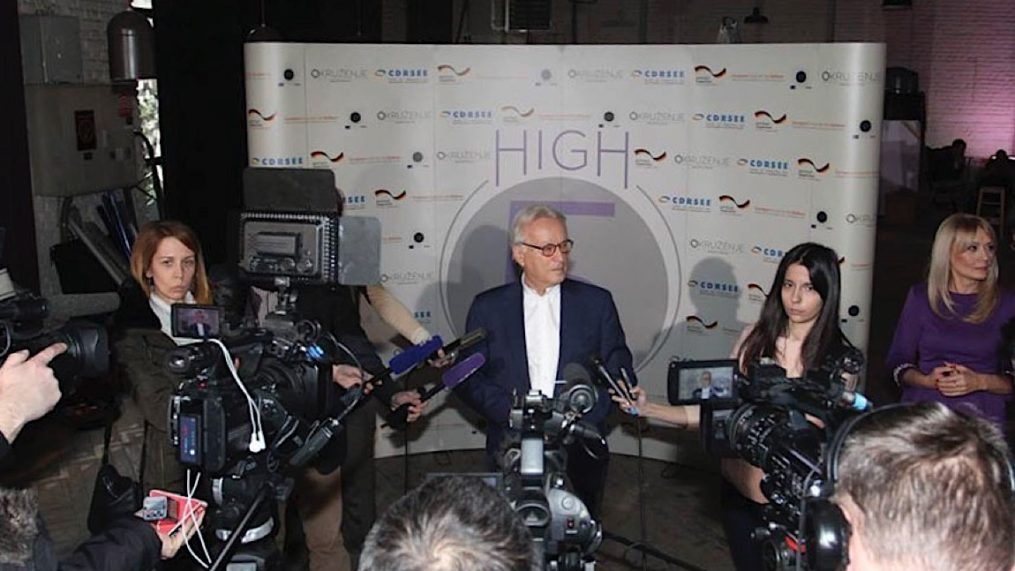
Overall the region is still hoping for closer relations to the EU and for progressing on its way towards membership. But as this is not to come very soon, other powers from Russia to China will try to gain influence.
Europe should not be too afraid of being pushed out of its neighboring region, but it should be watching these developments carefully. It should offer different – intermediate – steps leading clearly towards full economic and political integration but without being too tolerant concerning the criteria for membership. Integration inside individual countries with a heterogenous population, as well as regional integration between Balkan countries and into the European Union must remain the main aims of European politics. With patience but with strong determination the EU should pay attention to the developments in South Eastern Europe.
Fragile connectivity
Democracy and Reconciliation is the purpose of a Center located in Saloniki, of which I am chairman after Erhard Busek reasoned and asked me to take over. One of the main task of this center was and is the production of history books, which should present different views on events and developments in South Eastern Europe. The purpose is to enable history teachers and their students to look in an open minded manner at historic events and try to understand also other points of view in addition to their own. After participating at the presentation of these books in Brussels and Tirana I headed to Zagreb, which was the next location of the book presentation.
As I spent the weekend before the presentation in Carinthia in the south of Austria, I looked for a train connection to Zagreb. And I found one which suited to my time schedule. It was a train from Villach via Ljubljana and Zagreb to Vinkovci. I do not know why this connection is existing but it helped me to come to Zagreb without going first to Vienna to catch a plane.
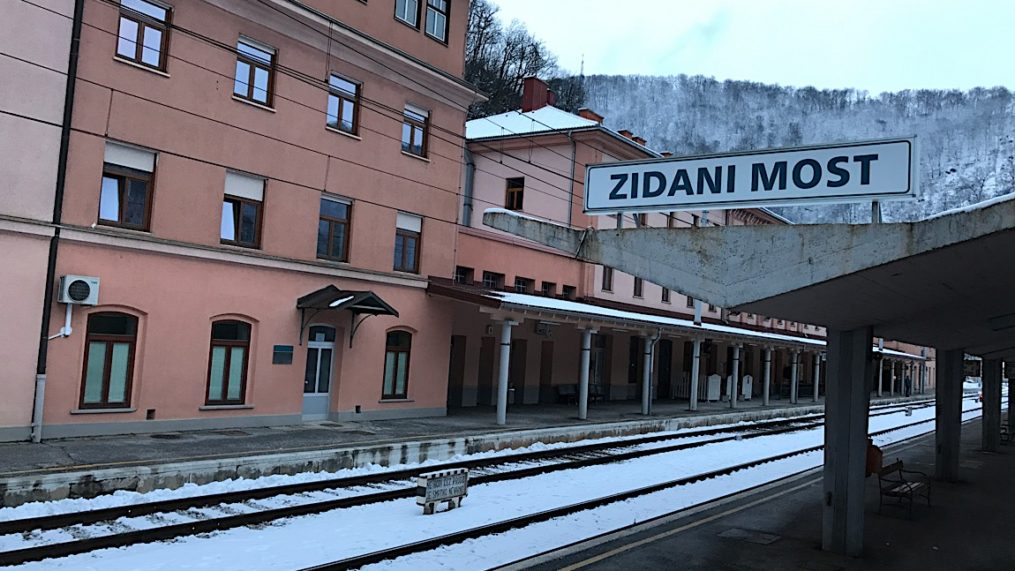
It was not a very modern version of a train and we had a longer stop due to technical problems in front of Ljubljana. But finally we came to the Slovene/Croatian border where I had the still unusual experience of border controls inside the European Union. And also the locomotive had to be changed. Looking out of the window during the trip you could also realize the different economic level of economic development in the former Yugoslav republics of Slovenia and Croatia. Coming from Austria it was still a journey back into the past. Perhaps with the exception of the capital cities, where you can feel some real economic progress. But opening the labour market for Croatians in few years creates already now some headache for trade unionists especially in Austria with its rising immigration and unemployment in spite of many
new jobs created.
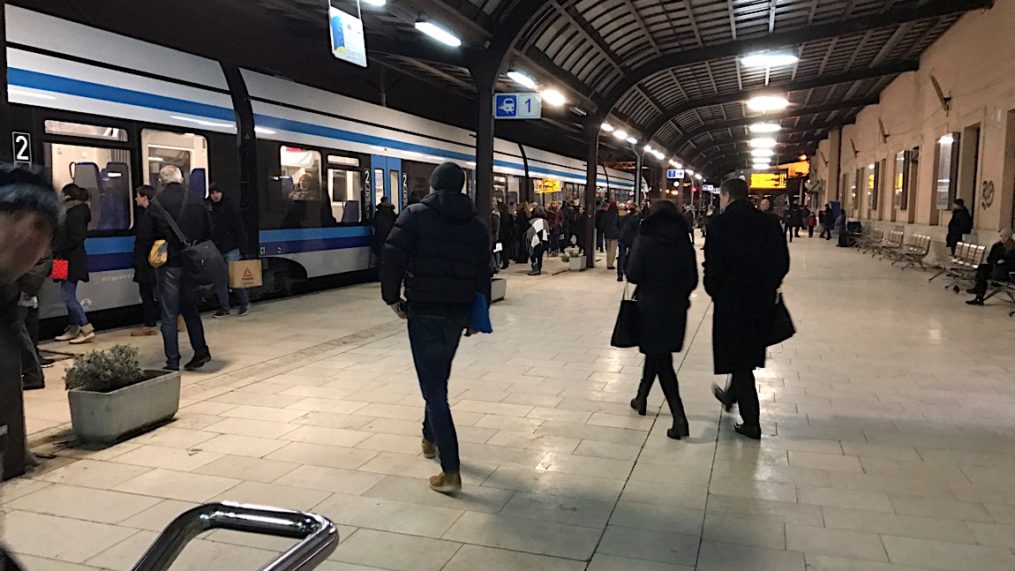
Can we learn from history?
The next day we had the presentation of the history books which should present different views and questions about the past and look into events not with a fixed ideological framework. Can we learn from history? Yes we can. But we must be clear about the conditions for learning and not repeating the mistakes of the past. And mistakes everybody made. If we always have our own fixed ideas about what happened we cannot learn from history. Then it would be us, who define the reality of the past instead of learning from the past. With such a one sided attitude we will always target somebody else, who was (and still is) responsible for the bad things which happened.
But there does not exist only one truth. Neither our truth nor the truth of the others is the whole truth. Different truths compete with each other for an adequate interpretation of facts. And of course there are facts even in our postfactual times. But facts can be interpreted in a different way and without necessarily giving up one’s point of view we should at least try to understand another point of view.
Especially in a region with so many conflicts still in our memory, an open and constructive discussion of recent events is not easy. Debate is necessary and wanted. Responsibility for events may be unilateral but very often it is a shared one. It is not the purpose of the books to define always the responsible personalities and policies, it is rather the purpose to look and analyze which different forces and developments lead to what kind of consequences.
Politics, especially national politics may find it strange not to have a clear definition of who is responsible for what. But history and especially our history books are giving hints to what may have gone wrong and look to the multiple causes of events. Our books are neither revisionist nor relativizing historic events, they rather promote an open discussion. And that means of course one has to expect contradiction, but it should be with reason and arguments behind it. Unfortunately in the Balkans – but as we can see not only here! – a reasonable discussion of historic events without too much emotions is very difficult. And there are too many politicians who cannot resist the attempt to use past conflicts to steer emotions. They do not accept the post-war settlements or at least attack it to get some of the nationalist oriented votes.
The post-Yugoslav wars settlements put into question
Unfortunately the different nationalistic politicians get also „intellectual“ support from the outside. Recently the famous magazine Foreign Affairs published an article by Timothy Less under the title „Dysfunction in the Balkans“ where he asked: „Can the Post-Yugoslav Settlement Survive?“ As the promise of future membership has been broken by the EU – which is not true as such – he argues for strong autonomy and finally a break away for regions which are looking for separation. They should be allowed to join their „mother countries“.
But is Serbia the mother country of the Republika Srpska and Croatia for the Croatian population of Bosnia-Herzegovina and Albania for the Kosovo and the Albanian minorities in Montenegro and Macedonia? And what about the countries which would lose a big part of their population by separation including people of their majority population?
So, what about the Bosniaks who live in the Republika Srpska and all the minorities living in the different regions whose regional majority(!) want to join their „motherland“.
I cannot agree that multiethnic countries are doomed to fail. You can find them all around the world and you cannot solve conflicts – which are existing – by drawing clear dividing lines, because there do not exist clear ethnic divisions. The division between Pakistan and India with its ongoing conflict about Kashmir is only the most prominent example of a failed policy of trying to solve issues by division. It is an illusion that by new separations and divisions you could solve the problems of the Balkans. It is rather integration which is necessary to create new links and institutional of cooperation. In times, when we have more and more mixed populations we have to think about state building by integration and not by separation.
It is true, that also economic and political integration is neither easy nor a guarantee for smooth success. But it helps to create conditions which cannot be undone easily, as we can see with the hardship which BREXIT is causing especially for the British. It is the responsibility of such experts like Mr. Less which is giving again and again food and support for those like Mr. Dodik in the Republika Srpska – to whom Mr. Less seems to be very close – that is clearly misleading politicians. With these arguments in their back they can promote their awful xenophobic and racial policies and prevent any way forward towards peace and reconciliation.
The next visit to the region brought me to Ljubljana, where in the framework of a meeting of the – social democratic – European Forum we discussed the developments of the Balkans and especially of Social democracy. As the Social Democracy inside the EU is in a very fragile and difficult situation it is also true for the Balkans. As I could discuss it with the new leader of the SDP in Croatia a new vision for the societies has to be developed to counter the nationalistic and right wing orientation of many societies and political forces. For the meeting in Ljubljana I prepared the following report on the economic situation in the Balkans.
WESTERN BALKANS: REGIONAL COOPERATION TO PREPARE FOR EU INTEGRATION
It is obvious that the Western Balkans lack political and economic dynamism in order to achieve the necessary modernization for enhancing democracy and creating the conditions of strong economic growth. The perspective of quick accession to the EU would be a clear incentive for a minimum of political and economic reforms. But the accession is no longer just around the corner, it moved away from the immediate future. And the general economic crisis was and is still contributing to the stalemate in the region.
Russia and China which both try to gain some influence are not able to deliver an alternative to the EU. Yes, Russia has some success in influencing the public opinion especially in Serbia and the Republika Srpska but lost influence in Montenegro. And China is helping in building some infrastructure and has gained some influence for instance in Albania. But it invests mainly in its own interest. Turkey tries to extend its influence – partly via religious interventions – but has too many grave problems at home and in its immediate neighborhood. And the US is far away and with President Trump there will probably be no strong engagement.
Therefore the EU will remain the main interlocutor and the prime market for the whole region. But the Western Balkans need more attention and investment coming from Europe if the EU wants to avoid setbacks, high migration pressure and interference from outside powers, which can not offer real alternatives but may create problems and irritation for the cooperation of the region with the EU. The answer from the side of the EU cannot and will not be quick and premature accession, but the EU should consider more intermediate steps towards membership to keep the perspective of full integration alive. But the EU should also insist that the countries themselves should enhance further intra-regional integration. This is certainly not an alternative to integration into the Common Market and the Political Union of the EU. But it should be seen as a necessary and helpful preparation for a successful European wide integration.
The renowned Vienna Institute for International Economic Studies (WIIW) which is specializing inter alia in the Western Balkans stated in a report from 2000: „The Balkans seem to have preferred violence over co-operation, disintegration over integration, divergence over convergence, indecision to clear strategy, and institutional collapse over rule of law. As a consequence, political and economic performances have been disappointing……After some ten years into these developments there are still uncertainties and open questions.“ This was in the year 2000. But not so much has changed in the one and a half decade since then for the Balkans as a whole. True, in some countries important changes took place in others we see rather stagnation. But overall the dynamics of the region is far behind necessities.
Income gap to neighbors and EU average
There is still an enormous gap between the GDP as expression of income and wealth of EU countries and the countries of the Balkans. If one takes the level of the GDP of the EU 28 as a benchmark and sets it as 100 than the poorer EU countries would be positioned 2016 between about 50 and 60. Bulgaria would be ranking with 48 and Croatia and Rumania with 58. But the countries of the Western Balkans outside the EU would have a clearly lower ranking: between 27 for Kosovo and 42 for Montenegro. In between you could find Bosnia & Hercegovina with 29, Albania with 30 and Macedonia and Serbia with 37.
Already inside the EU we cannot find a strong tendency of convergence. And that is even more true for the relationship between the EU and the Western Balkan. To realize visible steps of convergence would be particularly important due to the big gap between the rich EU countries and the poorer Western Balkan countries. And inside the – richer- EU countries there is a growing sentiment, that new member countries should only join the EU after important steps of convergence. They should be closer to the economic and social level of the EU average in order to avoid disruptions inside the Community.
Growth is slowly catching up
But some optimism can be found in the recent growth path of most of the Balkan countries. According to the research of the Vienna Institute for International Economic Studies: growth goes from „strength to strength“: it was rising from 0,3% in 2014 to 2,2% 2015 and will have been 2,6% in 2016. „Historically speaking and given the well known long standing ’structural constraints‘, this pace is relatively high by the region’s standards.“
Also the labour markets have been improving and unemployment declined – but starting from a very high level, one must add. The region benefited primarily from a strong recovery in Serbia, while the outlook for Macedonia and Kosovo is more gloomy. In 2018 there is still an additional recovery forecasted and the growth rate may be 3%. That could result in a further decline of unemployment and an increasing investment.
Limits for growth potential
But one should not expect an unlimited continuation of the positive economic development. One of the possible drags on the long term growth potential is originating in the weak external position of the Western Balkans. According to the Vienna Institut for International Economic Studies the export capacities of the Western Balkan countries is much weaker than those of the Central European member countries of the EU and in addition „their exports tend to be characterized by low skill products such as metals, footwear and textiles. Progress in terms of economic modernization and restructuring in the Western Balkan countries would basically require increased inflows of FDI (foreign direct investment).“
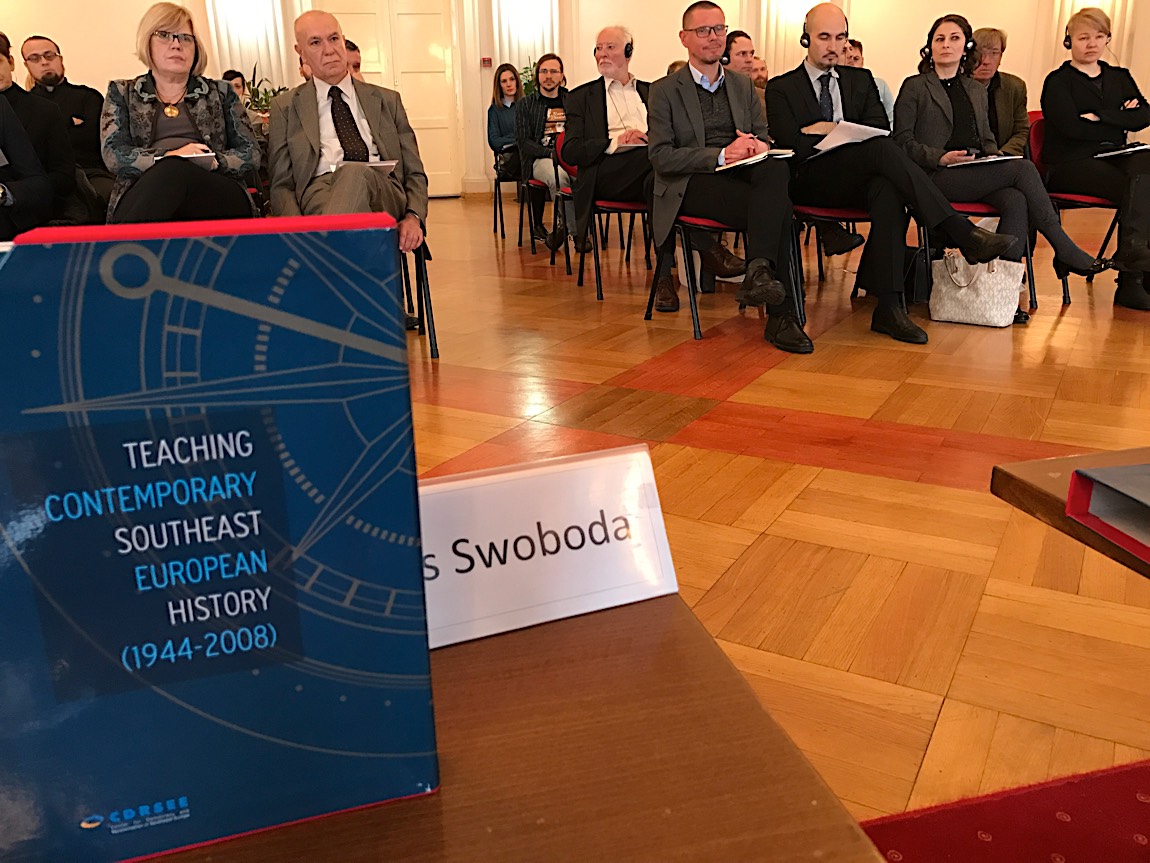
To have a real surge on foreign investment the political situation and future is still not stable enough. A clearer and quicker path towards the EU and the respective reform processes inside the countries of the region would be very helpful to attract more foreign investment. There was indeed some recovery of FDI into the Western Balkan countries, but it is still on a very low level. The exception to that increase of investment is Bosnia and Hercegovina and Macedonia. Probably in both cases the political instability is the reason for that deviation from the general positiv trend. But one must also confess that some of the positive trend is due to real estate investment like in Montenegro. But in Serbia at least a third went into manufacturing and Albania is profiting from the construction of the Trans Adriatic Pipeline.
Infrastructure construction and regional development
Infrastructure investment is of particular importance for creating conditions for a stronger economic growth. The scarcity of the infrastructure is due to the late industrial revolution in that periphic region of Europe. The benchmark of 2000 USD GDP which was surpassed by the United Kingdom in 1800 was reached by some Western Balkan countries only 200 years later. The stagnating period during the Ottoman Empire is one of the explanations for the retardation in the Western Balkans. In any case there is a strong infrastructure gap between the Western Balkans and their neighbors inside the EU.
In a „Joint Statement of Western Balkan 6 Prime Ministers“ in the framework of the „Berlin Initiative“ the leaders of the Western Balkans declared: „Improving regional cooperation and economic stability is one of our common tools for matching European standards and fulfilling the EU accession criteria, and the process should bring clear benefits to our citizens still before accession“.
And in particular they underlined the necessity to enhance and extend the regional infrastructure: „We recognize that improving connectivity within our region as well as with the EU is a key factor for growth and jobs in the Western Balkans.“ At the Vienna conference in the framework of the Berlin initiative some infrastructure projects have been agreed, some are in construction but much more must be done in coming years. In addition to these undertakings the Regional Affairs Council in Sarajevo is working on projects for the digital economic development.
Enhancing and improving human capital
Besides the „hard“ infrastructure and the preparations for the digital economy, there is a strong need for enhanced vocational training. Some countries have a quite high proportion of students in different educational institutions, but that is not reflected in a similarly high level of professional skills acquisition. Especially a dual training system like in some EU countries would help to offer investors a highly qualified labor force. Also the spending on Research and Development (R&D) is far below the level of countries with a comparable GDP. And that concerns private and public R&D expenditure. Investment in all forms of human capital is an urgent issue.
The countries of the Western Balkans issued not only declarations on the need for infrastructure investment but also one on „Jobs and Prosperity in a European Perspective“. According to that strategy the countries want to raise the employment rate for the region from 40% in 2010 to more than 44% in 2020. They want do support labour mobility, enhance the labour market governance and stimulate social economy initiatives. These measures should reduce the high outward migration. Overall there were several measures undertaken for increased labour mobility inside the region and the effects were evaluated positively. But some fear higher unemployment in their country due to labour migration into other countries of the region, if economic growth is not catching up.
Emigration is not only an economically motivated. The political development and the expectations of a future of stability and
democracy is also determining the readiness of the well qualified people to stay or to leave. Unfortunately we see still to many forces of narrow mindedness and nationalism which do not want to give way to the forces of reform and future orientation.
Migration and refugees
If the political reform process would stagnate and migration regimes for the countries of the Western Balkans would not be improved and liberalized the pressure to migrate to the richer EU countries will remain high. Changes in the regional migration regimes on the other hand could give the intra-regional migration a push. Full access to the EU labour market would increase the labour migration stock from 2,8 to 3,4 million labour migrants. But due to the refugees influx in the main target countries of immigration from the Balkans, there will be certainly no policy of full access to EU labour markets in the near future – with the exception of Croatia. Therefore the Western Balkans countries will have to to improve their labour market governance including regional cooperation in order to find jobs for the people of the region.
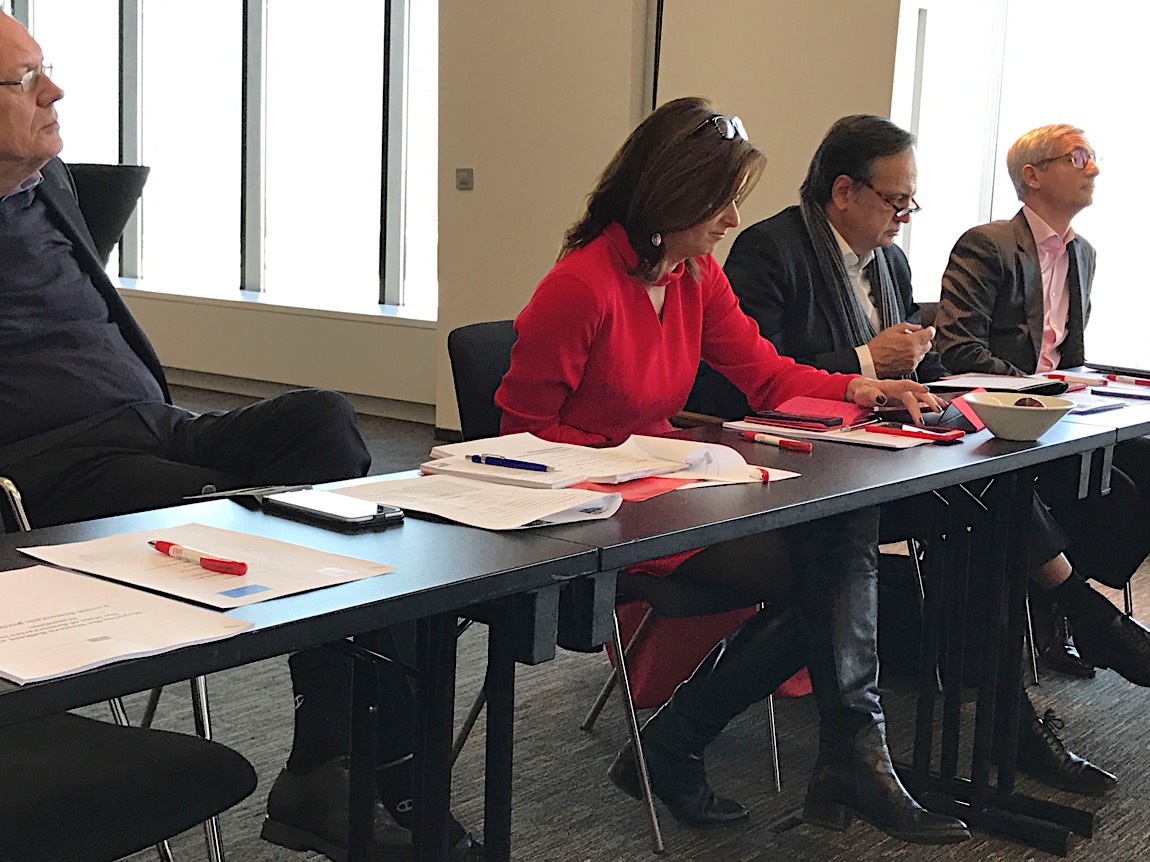
A moment of alarm and danger for the labour market came when a high influx of refugees came into the region. Although most refugees wanted the region only as a transit area, there was the danger that due to closed borders from EU countries a number of refugees would have to stay in the region and would create new problems for the absorption capacity of the regional labour markets. That became particularly visible with the closing of the Hungarian border. In fact Serbia was the most affected country and still is. The measures undertaken by Macedonia but most important the EU Turkey deal reduced the numbers wanting to cross the Balkan countries. But there are still illegal traffickers who try to lead refugees through the countries and Serbia is still confronted with a – limited- number of asylum seekers. The Western Balkan remains one of the most fragile region concerning the refugee issue and it is in their interest to keep up the Turkey deal and to strengthen the external border regime of the EU.
Pragmatic cooperation to overcome deficiencies
Overall the region of the Western Balkans is characterized by a mixture of political and economic problems and deficiencies. Too weak political and bureaucratic reforms including insufficient fight against corruption and insecurity concerning the political future of the countries lead to a lack of necessary foreign investment to enhance an export led growth. Domestic consumption – and remittances from emigrant labour which support that consumption – are enhancing economic growth but that is not enough to quickly close the enormous income and wealth gap between these countries and the average EU member countries.
The labour market situation in many EU countries and especially new pressures due to the refugees in the some of the richer EU members will continue to restrict the access for labour from the Western Balkans. So the countries have to improve their own labour market policies and match the demand in the region as a whole with the regional supply by qualifying their work force. Concerning the refugee issue the countries should urge the EU to have an effective and realistic refugee policy with a improved border management at the Schengen borders.
In general the countries of the region must show a stronger will to find pragmatic ways of cooperation. That concerns the construction of the necessary infrastructure including the digitalization of their economies and the formation of a highly qualified human capital which could enhance employment in the whole region. The existing free trade zone should be fully used in all its possibilities. Accession to the EU must remain a top priority.
The Western Balkan countries should learn from the experience of other Central European members of the EU. The one-sided neoliberal model of free markets without adequate social securities and support for those in need will fail and/or revitalize the nationalistic tendencies like in Hungary, Poland etc. The strengthening of the markets by reducing state monopolies, corruption and bureaucracy must be combined with social measures to reduce poverty. Certainly these measures must be financed in a sound way and depend on the national GDP and public tax finances a country can raise. At the end only such an economically and socially based policy will open the way towards the EU.
But realism must lead to to a closer regional cooperation in preparation to the full integration into the EU. It is not about reestablishing the former Yugoslavia. Anyway the former Yugoslav Republics Slovenia and Croatia are already inside the EU and the regional cooperation must include Albania, which was never part of Yugoslavia. But the readiness for good neighborhood and strong economic cooperation will be a test for readiness to join the EU.
Alternatives for the European periphery
It is difficult for countries which are lagging behind the more advanced economies of Europe to catch up, especially in times of austerity and neo-liberal policies. Of course comparisons with countries of Central Europe who had communist experiences can help. But maybe also other peripheral countries and regions of Europe’s south could be brought into the discussion. Not as an example but in order to learn from difficulties and some successes. Not everybody can learn from countries like Germany, Netherlands, Austria etc. and take these countries as role models.
But what is necessary for all countries is a stronger emphasis on creating jobs by qualifying people and training and retraining skills which can be used today and tomorrow. Broad education is indispensable for giving the younger generation a chance without be forced to emigrate.
